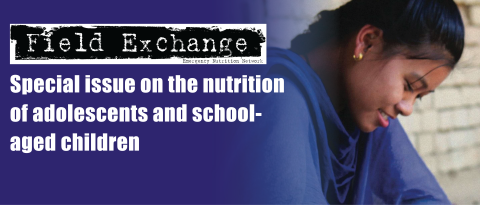Case Study 4: Digital solutions developed by youth to drive social behaviour change for nutrition in Zimbabwe
By Progress Katete and Pauline Mapfumo
Progress Katete is a UNV Nutrition Specialist at UNICEF, passionate about advocating for children’s rights and elevating and amplifying the voice of young people. She has vast experience in working on adolescent and youth engagement programmes, public health nutrition interventions and building the capacity of implementing partners.
Pauline Mapfumo is a nutritionist and co-creator of the YOLO4Health app. She is responsible for nutrition technical development and the creation of nutrition blogs and messages on the YOLO4Health platform.
Background
In Zimbabwe, approximately a third (32.5%) of boys 5-19 years of age are underweight while a similar proportion of girls are overweight (22.3%) or obese (6.5%) (Global Nutrition Report, 2020). The aggressive and unregulated marketing of unhealthy foods is on the rise, encouraging poor food choices among young people and resulting in increased intakes of unhealthy foods high in fat, sugar or salt.
In 2019, UNICEF Zimbabwe, in collaboration with the Ministry of Health and a local non-governmental organisation, hosted a Nutrition Hackathon, a sprint-like coding event. During this three-day event, youth aged 10-25 years used human-centred design approaches to create digital solutions to the nutrition challenges facing their communities. A total of 55 participants assumed the roles of developers, entrepreneurs, business developers, nutrition enthusiasts and marketers in teams of five. Their aim was to develop digital nutrition solutions to improve the health and nutrition of their fellow young people. After hours of intensive coding and brainstorming for workable solutions, each team showcased their prototype solutions during a five-minute pitch presentation. Innovations produced during the hackathon were evaluated by a panel of independent judges who were experts in nutrition, business and entrepreneurship, innovation technology and marketing.
The three best solutions were each awarded seed funding of USD1,500 to further develop and scale up their solutions. The three prototype products identified were KULA, a nutrition gaming application, YOLO4Health, a social media-based application providing nutrition messages, and H-globin which provided information to promote iron-rich diets and tests for anaemia using a retinal scanner. These prototypes received mentorship for three months to support further development. All three teams successfully registered their products as start-up companies and businesses.
Results
Despite challenges such as connectivity and the emergence of the COVID-19 pandemic which affected how team members met and collaborated, one out of the three applications produced a minimum viable product (i.e., a basic version of the product released to consumers) – YOLO4Health. YOLO4Health received a further six months of mentorship during an incubation period. The application was created to provide young people with access to correct nutrition and health information via social platforms which often contain false nutrition and health information. YOLO4Health is currently available as a web-based social platform (http://www.yolo4health.co.zw/) and can serve as a social behaviour change communication tool. It provides a platform for young people to access information and engage in social dialogues about their health goals, particularly in relation to nutrition and physical activity, in an exciting and engaging manner. To date, Yolo4Health has engaged a collective of 1,149 followers across Facebook, Twitter, Instagram and the Yolo App with the numbers continuing to rise. On average, posts receive a minimum of 50 likes and use across a variety of social media platforms widens the reach with followers.
Next steps
YOLO4Health is currently working on setting up an agreement with an organisation that provides financing and mentorship to grow small start-ups. This partnership will assist in the further development of the application, incorporating additional features such as physical activity tracking, as well as in marketing the app to new users. A short video of the hackathon event can be found at: https://youtu.be/wjSI-MCdYwg
For more information, please contact Progress Katete at pkatete@unicef.org
References
Global Nutrition Report (2020) Country profiles: Zimbabwe. Available at: https://globalnutritionreport.org/resources/nutrition-profiles/africa/eastern-africa/zimbabwe/


